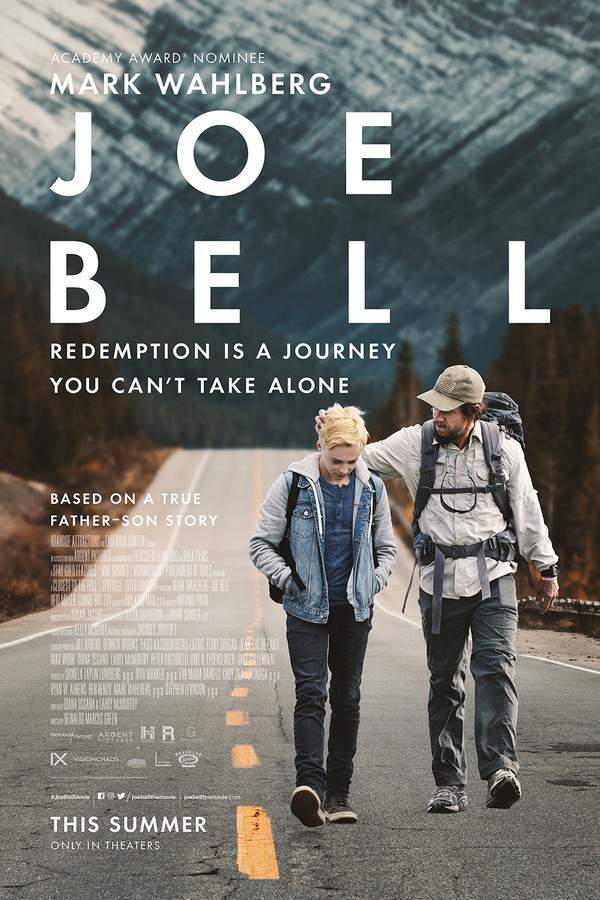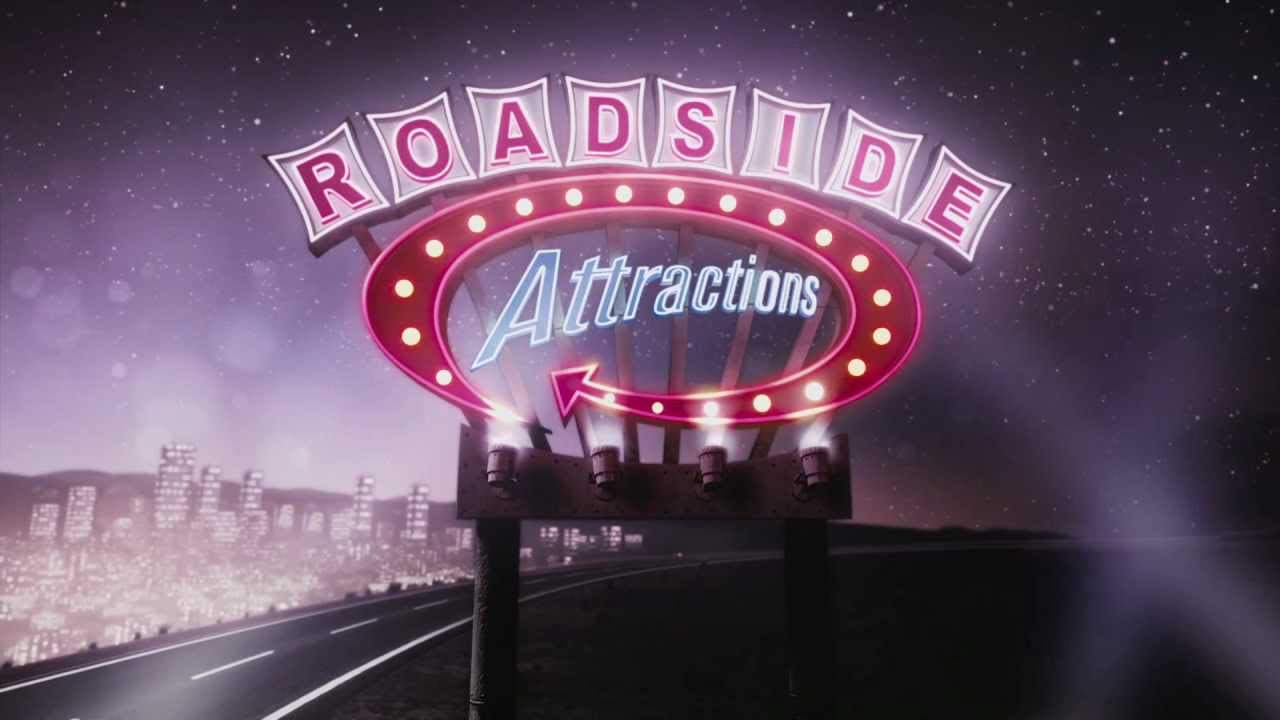Joe Bell 2021

Following the tragic loss of his son, a father embarks on a long walk across America. Driven by grief and a desire to honor his son's memory, he shares his story with those he meets, confronting the painful realities of bullying and homophobia. His journey sparks important conversations about acceptance, empathy, and the devastating impact of prejudice, while he grapples with his own past and strives to create a more understanding world.
Does Joe Bell have end credit scenes?
No!
Joe Bell does not have end credit scenes. You can leave when the credits roll.
Meet the Full Cast and Actors of Joe Bell
Explore the complete cast of Joe Bell, including both lead and supporting actors. Learn who plays each character, discover their past roles and achievements, and find out what makes this ensemble cast stand out in the world of film and television.
External Links and Streaming Options
Discover where to watch Joe Bell online, including streaming platforms, rental options, and official sources. Compare reviews, ratings, and in-depth movie information across sites like IMDb, TMDb, Rotten Tomatoes or Metacritic.
Ratings and Reviews for Joe Bell
See how Joe Bell is rated across major platforms like IMDb, Metacritic, and TMDb. Compare audience scores and critic reviews to understand where Joe Bell stands among top-rated movies in its genre.

The Movie Echo Score
Joe Bell delivers a heartfelt narrative anchored by strong performances, yet its structural execution hampers full impact. Critics repeatedly note a convoluted timeline and uneven pacing, while many viewers praise the emotional resonance and relevance of the true story. The film’s visual and auditory elements are competent but unremarkable, serving the narrative without standing out. Consequently, the movie remains compelling for its message but loses some rewatch appeal due to narrative inconsistencies.
The Movie Echo Score Breakdown for Joe Bell

Art & Craft
In terms of direction and visual craft, the film shows moments of competence but suffers from a fragmented narrative structure. Critics describe the cinematography and editing as merely effective, lacking distinctive flair, and point to a distracting temporal shuffle. Some viewers, however, found the pacing steady and the timeline manageable. Overall, the technical execution is adequate yet does not elevate the material.

Character & Emotion
Characterization emerges as the film’s strongest element, highlighted by nuanced lead performances. Reviewers commend both the veteran actor’s restrained turn and the newcomer’s powerful portrayal of the teen protagonist. Emotional depth and chemistry among the cast are repeatedly praised, creating a credible and affecting family dynamic. While the storyline is flawed, the actors’ work consistently grounds the film in authenticity.

Story & Flow
The story tackles a vital social issue with a blend of heartbreak and hope, resonating with many viewers. Critics, however, criticize the plot as overly convoluted and at times superficial, noting a premature reveal of pivotal twists. Audience feedback reflects appreciation for the emotional arc and the film’s message, though some find the pacing uneven. The narrative thus balances persuasive moments with structural weaknesses.

Sensory Experience
Sensory components—including score and visual style—function adequately without drawing attention to themselves. Critics acknowledge the soundtrack and cinematography as serviceable, contributing to mood rather than defining it. Viewers mention the film’s overall emotional tone but provide few specifics on sound or design. Consequently, the sensory experience supports the narrative modestly but lacks memorable distinctiveness.

Rewatch Factor
Rewatch potential is bolstered by the film’s emotional intensity and its socially relevant theme. Many audience members express a desire to revisit the story for its poignant moments, while a minority advise caution for those seeking lighter fare. Critical remarks about narrative confusion may temper repeated viewings, yet the strong performances and message sustain considerable lasting appeal.

Metascore
tbd
User Score


39%
TOMATOMETER

73%
User Score

65
%
User Score

2.8
From 7 fan ratings

4.33/5
From 3 fan ratings
Take the Ultimate Joe Bell Movie Quiz
Challenge your knowledge of Joe Bell with this fun and interactive movie quiz. Test yourself on key plot points, iconic characters, hidden details, and memorable moments to see how well you really know the film.
Joe Bell Movie Quiz: Test your knowledge on the impactful story of Joe Bell and his journey of acceptance and understanding.
What year does Joe Bell's journey take place?
2010
2012
2013
2015
Show hint
Full Plot Summary and Ending Explained for Joe Bell
Read the complete plot summary of Joe Bell, including all major events, twists, and the full ending explained in detail. Explore key characters, themes, hidden meanings, and everything you need to understand the story from beginning to end.
In May 2013, a significant moment in Joe Bell’s life unfolds as he travels along a desolate highway. During this journey, he calls his wife Lola to catch up and share the events of the day. However, his tranquility is abruptly interrupted when a speeding bus forces him to seek refuge. Coincidentally, this leads him to a local high school, where he is set to give a heartfelt speech about tolerance and acceptance to a group of impressionable students. Jadin, his son, watches from the auditorium’s rear, with a complex mix of curiosity and worry.
As Joe speaks, his words flow with emotion, illustrating the devastating impact of bullying while emphasizing the need for understanding and compassion. Jadin listens closely, likely contemplating their own struggles in silence. After the presentation, father and son camp out along the highway, their peaceful contemplation only disturbed by the distant hum of passing vehicles.
That night, as they drift into sleep, echoes of past mistakes loom over them. A flashback reveals a time, nine months earlier, when Jadin confided in Joe about the relentless bullying he faced at school, stemming from his perceived differences. Instead of offering comfort, Joe misguidedly advised his son to fight back physically, believing that was the only way to assert his worth.
Later, Lola confronts Joe, explaining that his approach won’t shield Jadin from the harsh reality of being unique. The weight of their unspoken tensions hangs in the air. The scene transitions to a sun-kissed yard in La Grande, Oregon, showcasing Jadin’s passion for cheerleading. Despite the unwavering support from his parents, Joe’s embarrassment erupts, leading to a heated exchange with Jadin.
Days morph into weeks, intensifying Joe’s internal struggles which culminate in a sincere apology to Jadin, vowing to transform and expressing unconditional love. Continuing their journey along the Idaho highway, Joe and Jadin engage in light-hearted banter about the pros and cons of La Grande versus New York City.
Amidst their playful debate, Jadin breaks into song, passionately singing Lady Gaga’s “Born This Way.” To his surprise and delight, Joe joins in, their voices harmonizing beautifully against the backdrop of the vast blue sky. As they pause for food at a roadside diner, a waitress’s familiar gaze hints at Joe’s presence on television, igniting an unexpected connection to current events surrounding same-sex marriage.
However, when a bar patron mutters derogatory remarks, Joe confronts him, sharing his initiative’s mission—a Walk for Inclusion. Sensing futility in the interaction, Jadin wisely notes that true change is hindered by pervasive societal attitudes rather than individuals.
The narrative delves deeply into Jadin’s tormenting experiences, revealing various episodes of bullying at school, particularly the interaction with a football player named Chance. A Halloween invitation leads to a tender kiss, while Jadin dazzles during a football game performance, facing jeers from some observers. Consequently, Joe’s embarrassment compels him and Lola to leave swiftly from the stands.
In a heartbreaking twist, as Jadin faces more online harassment, he turns to his younger brother Joseph for comfort. Joe, attempting to reassure him, faces rebuttal from Jadin regarding his inconsistency in attendance at major events. A poignant phone call with Lola surfaces her struggle with Joe’s physical absence from Jadin’s life, serving as a harsh reminder of Joe’s shortcomings.
Through the ups and downs, heartfelt moments and even dances in the rain emerge, underscoring an evolving relationship. As flashbacks unveil aspirations between Jadin and Chance, they navigate their ambitions cautiously, revealing critical dimensions about their characters.
Upon arriving in Salt Lake City, Joe immerses himself in the vibrant LGBTQ+ scene, with Jadin playfully prompting him about attracting potential romantic suitors. A night out at a gay bar introduces Joe to various narratives from patrons who resonate with his cause. The encounter with a charismatic drag queen serves as a catalyst, igniting both pride and a reminder of his loss—his late son.
As Joe and Jadin’s paths intertwine through poignant moments, the latter’s struggle culminates in the heart-wrenching discovery of his suicide note, rattling the core of the Bell family. A whirlwind of grief envelopes them as they grapple with the irreparable void that Jadin’s passing leaves behind.
Driven by loss, Joe resolves to walk across America, dedicated to raising awareness against bullying in honor of his son. Along his journey, Joe connects with others sharing their struggles, including a fellow father, Sheriff Westin, whose own battle resonates with Joe profoundly, fostering a bond over their shared vulnerabilities.
As the tale unfolds, emotional confrontations with Joe’s family reveal the depth of their collective agony and aspirations for healing. The narrative crescendos toward tragic realizations, leading to Joe’s commitment to continue honoring Jadin’s memory, even as he grapples with his own demons.
In a shocking and poignant closing, Sheriff Westin receives grave news about Joe, igniting a frantic realization of the fragility of existence and the enduring legacy of love and loss. Ultimately, Joe’s extraordinary journey towards understanding and healing serves as a heartrending reminder of the importance of compassion and acceptance in the face of adversity.
Uncover the Details: Timeline, Characters, Themes, and Beyond!

Coming soon on iOS and Android
The Plot Explained Mobile App
From blockbusters to hidden gems — dive into movie stories anytime, anywhere. Save your favorites, discover plots faster, and never miss a twist again.
Sign up to be the first to know when we launch. Your email stays private — always.
Watch Trailers, Clips & Behind-the-Scenes for Joe Bell
Watch official trailers, exclusive clips, cast interviews, and behind-the-scenes footage from Joe Bell. Dive deeper into the making of the film, its standout moments, and key production insights.
Joe Bell Other Names and Titles
Explore the various alternative titles, translations, and other names used for Joe Bell across different regions and languages. Understand how the film is marketed and recognized worldwide.
Quick Links: Summary, Cast, Ratings, More

What's After the Movie?
Not sure whether to stay after the credits? Find out!
Explore Our Movie Platform
New Movie Releases (2025)
Famous Movie Actors
Top Film Production Studios
Movie Plot Summaries & Endings
Major Movie Awards & Winners
Best Concert Films & Music Documentaries
Movie Collections and Curated Lists
© 2025 What's After the Movie. All rights reserved.






















